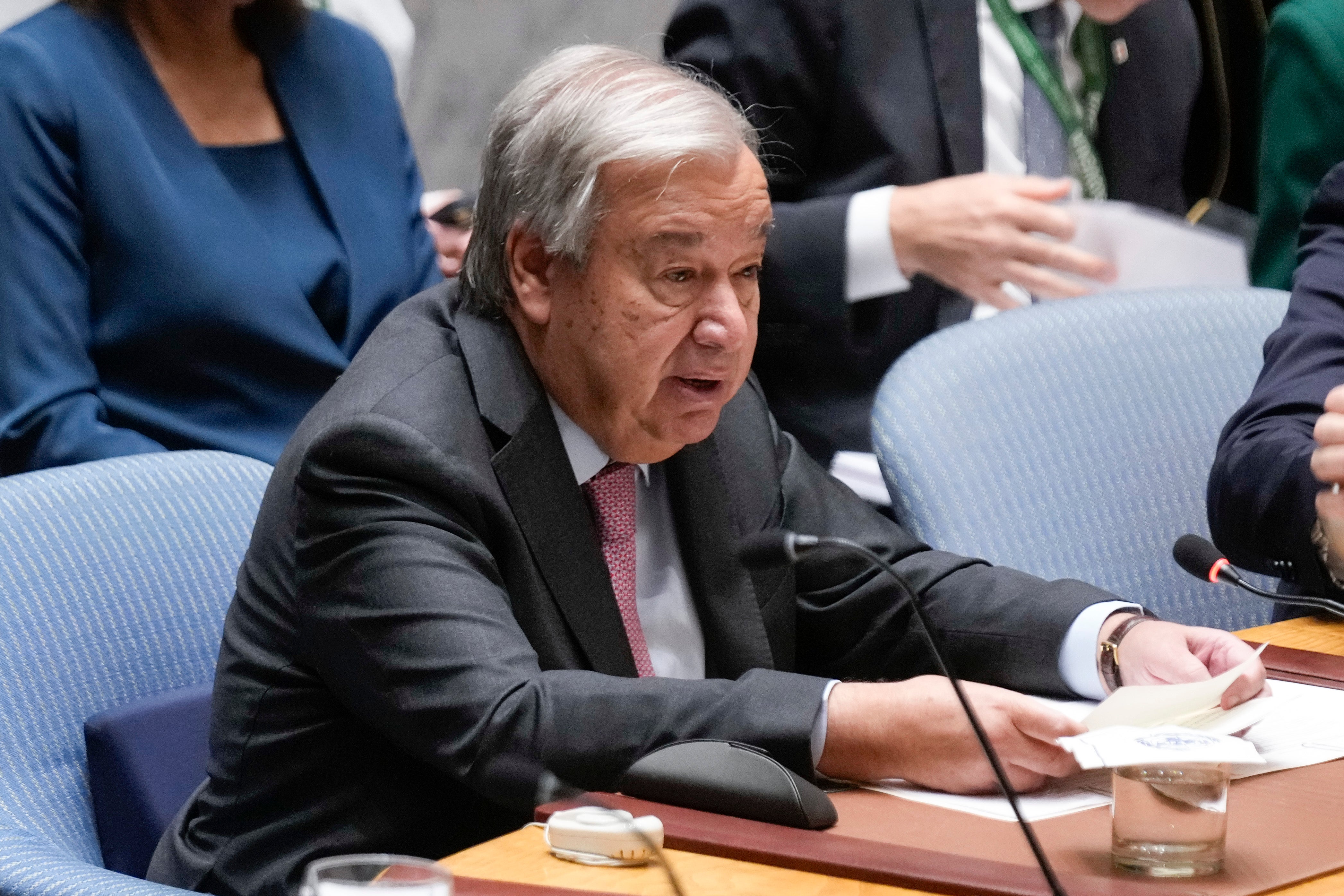UN chief criticizes divided Security Council for failure of leadership to end wars, calls for unity
The United Nations chief sharply criticized the powerful Security Council for a failure of leadership to end wars in Gaza, Ukraine, Sudan and beyond

The United Nations chief sharply criticized the powerful but deeply divided Security Council at a high-level meeting Wednesday for a failure of leadership to end wars in Gaza, Ukraine, Sudan and beyond.
“Peace demands action. And peace demands leadership,” Secretary-General Antonio Guterres told the 15-member council charged with ensuring international peace and security. “Instead, we’re seeing deepening geopolitical divisions and mistrust.”
He pointed to repeated violations of the U.N. Charter and international law, conflicts multiplying and becoming more deadly, and civilians paying the steepest price.
The council has been blocked from any action on Ukraine because Russia is a veto-wielding member and a party to the conflict – invading its neighbor in violation of the U.N. Charter which requires all members to ensure the sovereignty and territorial integrity of all other nations.
It has been stymied in taking tough action on the Israel-Hamas war in Gaza because of Israel’s close ally, the United States, another veto-wielding member. And in Sudan, there are divisions among some members supporting the warring rival generals.
The secretary-general said peace is possible in Ukraine, Gaza and Sudan if council members unite and follow the U.N. Charter and international law.
“A divided council cannot,” he said. “It is imperative that council members spare no effort to work together to find common ground” as it has done overseeing 11 peacekeeping operations on three continents and authorizing humanitarian aid to global hotspots.
Slovenia, which holds the Security Council presidency this month, chose the topic, “Leadership for Peace” for its signature event during the annual gathering of world leaders at the U.N. General Assembly – and invited leaders from the 15 council nations to attend.
The advance speakers list has five presidents and prime ministers, six foreign ministers, a deputy foreign minister, a vice foreign minister, the U.S. ambassador, who is also listed as a member of President Joe Biden’s Cabinet, and a Russian representative.
At the same time as the council was meeting, Biden was appearing on “The View,” a popular daytime talk show, while Secretary of State Antony Blinken’s schedule said he was scheduled to attend a meeting of the Group of 20 major economic powers soon after.
Mirjana Spoljaric Egger, president of the International Committee of the Red Cross, which works in the world's crisis areas, called for a renewed respect for international humanitarian law. “Wars can be fought and won while adhering to the letter and the spirit of the law,” she told the council.
Spoljaric said the Red Cross today sees warring parties overlooking their international humanitarian law obligations “to justify violations, destruction and impediments to humanitarian action.”